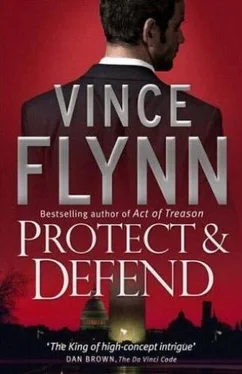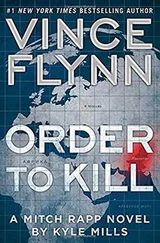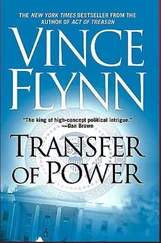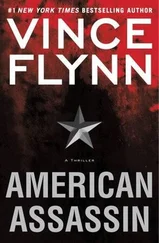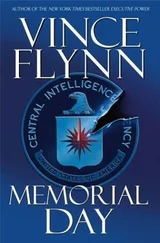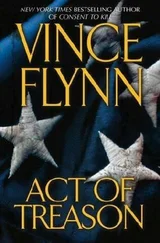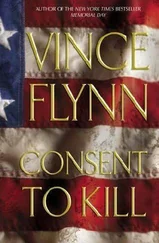“Partial. The NRO is analyzing it as we speak.” Kennedy was referring to the National Reconnaissance Office.
“Have you talked to Ben?” Rapp was referring to Ben Freidman, Kennedy’s equal at Mossad.
“He hasn’t returned any of my calls.”
Rapp shook his head. “That’s not a good sign.”
“Possibly, but I would imagine he has his hands full.”
“Or he’s dodging you. How about their ambassador?”
“Nothing so far. State has reached out to him, but he claims he knows even less than we do.”
“He’s probably telling the truth.” Rapp glanced over at the president who was talking to his chief of staff and national security advisor. Moving closer to Kennedy, he asked, “Why am I here? This all seems a bit above my pay grade at this point.”
Kennedy pulled her reading glasses to the tip of her nose and said, “I have no idea.”
Rapp’s brow furrowed in disbelief. “Come on.”
“Seriously. I found out about this right before I gave him his morning briefing.” Kennedy tapped one of the satellite photos. “That was why he had me come on the trip. Midway between DC and Atlanta he went into his office to make a call. Ten minutes later he emerged and told me he wanted you on the return flight to DC.”
Rapp leaned back in his chair, folded his arms, considered the possible implications of the president’s sudden interest in him and muttered, “I wonder who in the hell he talked to.”
In the last year Rapp had sat through more videoconferences than he had in all his previous years of government service combined. The post-9/11 counterterrorism bureaucracy had exploded from a few hundred dedicated men and women at the CIA, FBI, State, and a handful of other agencies to thousands of people with a combined budget of more than a billion dollars a year. In the grand tradition of Capitol Hill, the politicians had thrown vast amounts of money at the problem whether it was needed or not.
New agencies were created like Homeland Security, the National Counterterrorism Center, and the Terrorist Threat Integration Center. Agencies that Rapp didn’t even know existed like the National Geospatial Intelligence Agency were elevated in importance and brought into the big tent of counterterrorism. Rapp still wasn’t exactly sure what the Geospatial gang did, but he did know they had a shiny new headquarters and a budget big enough to embarrass a lobbyist. Add to this satellite offices in major cities all over the world, the ever-burgeoning counterterrorism operations at Defense, Justice, and State, and you were left with an unwieldy bureaucracy that was about as agile as a ballistic missile submarine in the Potomac River.
One of Rapp’s great fears had come to pass. Talented people and countless resources had been sucked into the support side of the business as opposed to the operations side, where it was really needed. And because one of the great lessons of 9/11 was that not enough people were talking to each other, the dictum had come down from Capitol Hill that everyone was to play nice and share information. Hence the boom in videoconferences. It had become a way of life, but not one that Rapp embraced.
A forty-inch plasma screen hung on the far wall of the conference room opposite the president. It was currently split in two, with Secretary of Defense Brad England on the left and Secretary of State Sunny Wicka on the right. President Alexander had been in office a little over a year, and fortunately for the young leader his administration had thus far avoided any major international conflicts. That was all about to change. Rapp had heard good things from Kennedy about the president’s national security team, which was reassuring given the seeming gravity of whatever had happened at the Iranian nuclear facility. As with most videoconferences, Rapp’s plan was to say as little as possible. He was very suspicious of the claims made by the communications folks that the lines were secure. Whenever you started bouncing communications off satellites Rapp assumed someone was capturing those signals and decrypting them.
“Brad,” the president started, “I’m sorry for pulling you off the slopes.”
“That’s all right, Mr. President, it’s part of the job.” England had been taking a long weekend at his mountaintop retreat in Beaver Creek, Colorado. He was in his early fifties and despite his gray hair, he had a very boyish way about him. A former big gun for Merrill Lynch, England fit into the president’s plan of putting private sector people in his cabinet.
“Hello, Sunny,” the president greeted the secretary of state. “Have you heard anything further from the Israeli ambassador?”
“No. At least not anything useful.”
Wicka was at her desk in Foggy Bottom. Rapp knew his boss and Wicka had a good relationship. He took it as a good sign that she didn’t have five of her underlings sitting in on the call.
“Has the foreign minister returned your call?” the president asked.
“Yes. I just got off the phone with her.”
“And?”
“Officially, the Israeli government has no idea what happened at the Isfahan facility.”
“Unofficially?” the president asked.
Wicka twirled a black Mont Blanc pen in her right hand. At seventy-one she looked a decade younger than her age. “There are some rumblings that a certain outfit may have had a hand in it.”
The president turned and looked at Kennedy who was immediately to his left.
“Director General Freidman,” Kennedy said, “has not returned any of my phone calls.”
“Is that unusual behavior for him?” President Alexander asked.
“Not necessarily,” Kennedy said in an even tone.
Rapp kept his editorial comments to himself. He had known Ben Freidman for a long time and had worked very closely with the Mossad on at least a half dozen operations. Freidman would do whatever it took to protect his beloved Israel. He was unapologetic in his belief that Israel should be the one that benefited at every juncture of their relationship. Rapp respected the man’s abilities and tenacity, but he never lost sight of the fact that Freidman would sell him down the river if it meant giving his country the slightest edge.
“What are we hearing from Iran?” Alexander asked the group.
Wicka was the first to chime in. “Nothing official.”
“The National Security Agency is reporting a huge spike in communications,” Ozark answered.
“What kind?” Alexander asked.
“Everything. Cell phone traffic, Internet, military, civilian critical response, religious leadership, politicians…the whole country is talking.”
“What about the media?”
The secretary of state fielded the question. “Twenty minutes ago al-Jazeera broke into their newscast with footage of fire trucks and ambulances entering the base.”
The president pondered that thought for a moment and then looked at the plasma screen. “Brad, what are the Joint Chiefs telling you?”
“We had two AWACS on station.” The secretary of defense was referring to the Air Force’s E-3 Airborne Warning and Control System. “One over Baghdad and the other out over the Northern Gulf. Nothing moved through that airspace this morning that wasn’t either ours or the Brits’.”
“They’re sure?” the president pressed.
“Yes,” London hesitated. “There is, however, one extremely remote possibility.”
“What’s that?”
“If the Israelis have developed a stealth bomber, it is possible that they could have pulled it off, but the entire Joint Chiefs think this is not a realistic scenario.”
“Irene?” the president asked the director of the CIA.
“We’ve heard nothing along those lines. Our own B-2s cost over two billion dollars apiece. Their economy could never support that kind of expenditure, and even if they could, why would they risk flying it in broad daylight?”
Читать дальше
